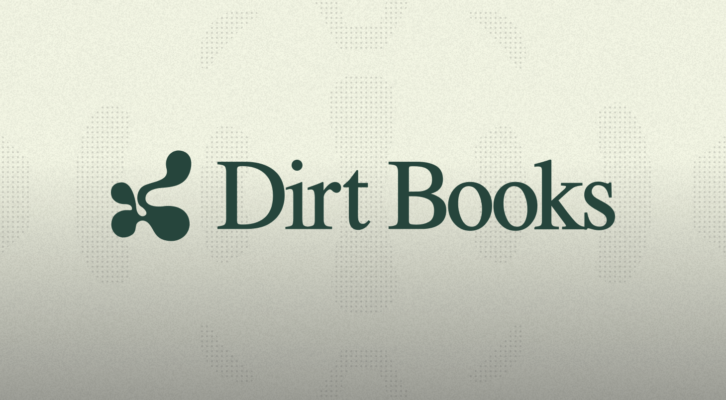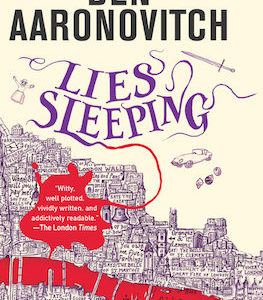Five years ago I wrote an article called the Six Steps of Self-Publishing. It was an overview of how to self-publish, at least the way I do it. I think it’s stood the test of time and is still a useful overview. However, publishing today, whether traditional or indie, changes in weeks rather than years, and so do its priorities for authors.
Back in the day I upset a lot of people when I said that there was a glut of books in the market because of self-publishing. I got slammed from here to eternity. But actually, that’s the situation today. Although it’s impossible to get an accurate number of books (because so many do not have ISBNs and Amazon keeps its data confidential), the best guestimates are anywhere between 700,000 and 1,000,000 books are self-published every YEAR (that’s 58,000 a day at the low end). A glut by any name…
At the same time, ironically, it’s never been easier to self-publish. Sophisticated tools provided by Amazon, Kobo, B&N, and AppleBooks, plus services from book designers, converters, and even marketers require little except money to get professional looking results.
Still, because of the volume of books, it’s hard to get “discovered” and build your visibility in the book market. After the first blush of sales from friends and family, sales often drop off. Then what? How do you get your book(s) noticed, reviewed, and purchased by readers who don’t know it exists and aren’t looking for it?
How do you get your book(s) noticed, reviewed, and purchased by readers who don’t know it exists and aren’t looking for it?First off, know that it’s a long term process. Tools like data collection and analysis, targeted promotions, cooperative ventures, and maybe even a prayer, are part of the plan. And using those tools requires that indie authors treat their writing as a business. That doesn’t mean sacrificing the beautiful agony of writing. But what it does mean is that after the book is finished, you must detach yourself emotionally and approach publication and promotion professionally, assessing your book’s appeal and strengths.
That’s why this article will suggest questions you need to ask in order to develop an effective marketing strategy. Happily, once you do this, the actual tactics you decide to use will likely be pretty straight-forward, even obvious.
__________________________________
KNOW YOUR BOOK
__________________________________
Before you publish your book, get to know what it is and where it fits within the genre and the market. That’s what publishers do. If you’re a crime fiction aficionado, you may already know the answers to some or all of these. If not, find out:
What subgenre of crime fiction is your book?
If it’s non-fiction, what type of book?
True Crime
Biography
Critiques
Other
Other authors/titles to which it is similar?
What’s your price range (low/medium/premium)?
Does it span more than one genre?
Series or stand-alone? If series, how deep?
Are any elements unique?
Setting
Characters
Plot /Denouement
Narrative style
__________________________________
KNOW YOUR AUDIENCE
__________________________________
It’s equally important to know the audience to whom you’re targeting your book. Just saying “people who read mysteries” doesn’t cut it any more. The more you know, the more precise you can be in reaching them, promoting to them, and hopefully, turning them into fans. By understanding their wants, needs, and feelings toward reading and crime fiction, you’ll be able to focus on the most receptive people and skip the rest. Questions include:
Do they skew male or female? How old are they?
Do they buy or do they get books from libraries?
Do they fish in the Kindle Select ocean?
Where do they live; urban, rural, suburbs?
If they are female and over 40 (which many are), do they have college educations?
Do they read five books a week or five books a year?
Who are their favorite authors?
Where do they hang out, off or online?
What else do they read?
Do they listen to audiobooks?
Sandra Beckwith, founder of Build Book Buzz, a great marketing resource, btw, puts it this way:
“To get your book discovered, you want to know your specific target audience’s:
Demographics
Psychographics (life stage, lifestyle, culture, religion, etc.)
Book buying habits or preferences
You have to do some work to get it. But once you have that knowledge, you’ll be able to select the book marketing tactics that will help you reach and connect with the readers who will buy your book. You will turbocharge the “discoverability” process because you’ll be in the right place at the right time with the right message.
For example, when you know that your target audience is book-loving females between the ages of 13 and 30, you will know that Snapchat is where it’s happening in social media and that you will reach them on Wattpad. That’s because 78 percent of Wattpad’s users are story-loving millennials and “Gen Zs.” READ THE ENTIRE ARTICLE HERE.
Melissa Storm, a romance author, is a data-driven marketer and has created Lit-Ring, a company offering cooperative giveaways and events and tools designed to build author fan bases and followers on Amazon and BookBub. Along the way, she surveys readers:
At LitRing, we constantly survey our readers to learn more about how the overall eBook market is changing. We also break these results down by genre and publish a detailed report at the end of every year to share our findings with authors. The results of our 2018 survey of 5,000 readers should be available soon. In the meantime, check out our 2017 survey of 10,000 readers at www.LitRing.com/about and see what you can learn about the readers in your genre.
You can find out more about her book marketing programs here.
__________________________________
WHERE TO FIND INFORMATION
__________________________________
There is a lot more information out there than you think. For your own book information, you can Google your genre plus the word “demographics.” For more general information, Google “Book Reader demographics.” You should find pages of resources and articles.
You can also check other third-party research and data from places like:
The American Association of Publishers
The Pew Research Center
American Bookseller Association
American Library Association
And, of course, if you have the money and time, you can hire a market research specialist who can find out more detailed information for you and you alone.
__________________________________
DISCOVERY AND PROMOTIONAL TOOLS
__________________________________
So, why answer all the questions I posed above? Because you’ll use the answers to:
Select your Amazon and other categories
Write your book description
Design and produce your cover
Reach out and build an ARC/Review team
Solicit reviews
Target ads and promotions
It’s that last category that can be a black hole. What targeting? Which promotions? This is the place where you need to be nimble and aware. It seems like there are new marketing tools every day, some good, some mediocre, some nothing more than scams. If you can, join a few Facebook groups where members discuss and analyze and rate new promo tools as they become available. A couple of the best, I’ve found, are:
Novelists, Inc (You may need to join the organization itself)
I know there are a lot more, but these are the ones founded and managed by full-time self-published authors. I’ve learned a lot from reading them.
__________________________________
DISCOVERY TOOLS
__________________________________
So what are these tools? If you’ve been waiting to get to this part, you may be disappointed. Because things change so quickly, and providers come and go, it’s impossible to list all of them, much less explain or rate them. What I can tell you is that like Sandra Beckwith said above, research into your reader audience will indicate that you should post on Wattpad. Or it may say to try for an article in AARP. That’s where things get specific and unique to your book and your readers.
So what follows are categories of promotional and discovery tools that may prove useful.
Cooperative Ventures: Mostly used to bring in new fans for your newsletter or Review team, co-op ventures are a cost-effective way to broaden your audience. Most require you to give away something of value to a reader: a book, short story, or a long excerpt. There are a slew of them these days. I like:
BookSweeps
BookFunnel
In addition, there are Facebook groups that offer coop deals by genre, many of them offshoots of 20Booksto50K. Be aware that some new “fans” will drop off once they get your free book, but others will stick to you, especially if you engage them in a fresh, original way.
Audio: Podcasts and audiobooks: Audio is the fastest-growing segment of the book market these days. Podcasts are, too. You probably have a paperback of your book (KDP makes it easy to produce). You might consider an audio production of your book. Warning: It is expensive, and it’s a very long term investment, but it sure is nice to have, and distribution outlets are growing rapidly. You can also try to get a guest slot on crime oriented podcasts. They usually provide a print summary, so, in effect, you get two mentions for the price of one. Radio interviews seem to be making a comeback too, so don’t forget local stations or streaming shows like Authors on the Air.
Social Media: Better folks than I have written about generic social media, which ones to use, and what to say, so I’ll leave it to you and Google to find them. Don’t overdo it, but regular posts will remind people your book is waiting to be read. You can also use social media months after your book is published to remind people to review it on Amazon, Goodreads, and elsewhere, and to request bookstores and libraries to buy it. Pinterest and Instagram, because they are visual, seem to be as popular if not more, than Facebook and Twitter these days.
Ads and Paid Posts: Again, I’ll leave these to the so-called ad experts, but Facebook, Book Bub, and Amazon (AMS) seem to be the most popular ad venues these days. Enough said. You’ll find a ton of information and how-to’s with a simple Google search.
Libraries: Speaking of libraries, don’t forget to reach out to libraries and bookstores in your city, area, and state. Libraries are an untapped non-returnable source of purchases. Libraries are inherently decentralized, so you’ll have to find local lists of library directors to whom to direct a respectful query letter, and it’s better to do this AFTER you have a bunch of reviews to offer. You’ll also want to send a sales sheet along with your email. If you have a workshop idea that would appeal to libraries, that might be worthwhile too.
Contests and Awards: There are so many of these now that the aggregate weight of them has declined, but a few still carry prestige. The Edgars do not accept self-published books, and the Anthony’s don’t really either. But the Shamus and the Thriller Awards do, and so do regional awards like the Chicago Writers Association and the Midland Authors Society. Check in your local area. Self-publishing awards have exploded and are all over the place, but the IPPY and Foreword Magazine seem to be respected. You may have to pay to enter. Use your judgement.
Short Stories: I am a great believer in writing short stories. I’ve written why here. They can help your visibility long-term, and if you’re lucky enough to have one included in an anthology, it can boost your credibility when other bestselling authors are included. Don’t forget to promote that fact.
I’ll close with another rogue thought that may get yet me blackballed from the self-publishing community. The prevailing wisdom says you should write at least four books a year. That’s one every three months. I know of people writing one book a month. Answer me this: how is that helping the glut of books in the market? Short answer—it isn’t.
It may work for a while, and I know people are making a lot of money that way, but eventually, books go dormant. It’s a fact of publishing. Why put yourself on the hamster wheel of writing that eats up your energy, creativity, and—well—your life? Sure, you may be discovered, and heralded for a time. But if the book isn’t good, you will be quickly forgotten. Take the time to become a better writer, not a faster one. Learn to master your craft. You can’t write a great book in a month. Or three months. Sometimes it takes a year. Or five.
As with all advice, take what you want and leave the rest. I hope most of this has been useful.

















